Learning how to use herbs in cooking is a simple way to add fresh flavor to your everyday meals.
Whether you're sprinkling basil over pasta, adding rosemary to roasted potatoes, or finishing a salad with a touch of dill, they bring vibrant flavor, color, and aroma to your meals.
New to gardening? Be sure to check out my Backyard Gardening Tips page—it’s full of helpful ideas and resources for every level.
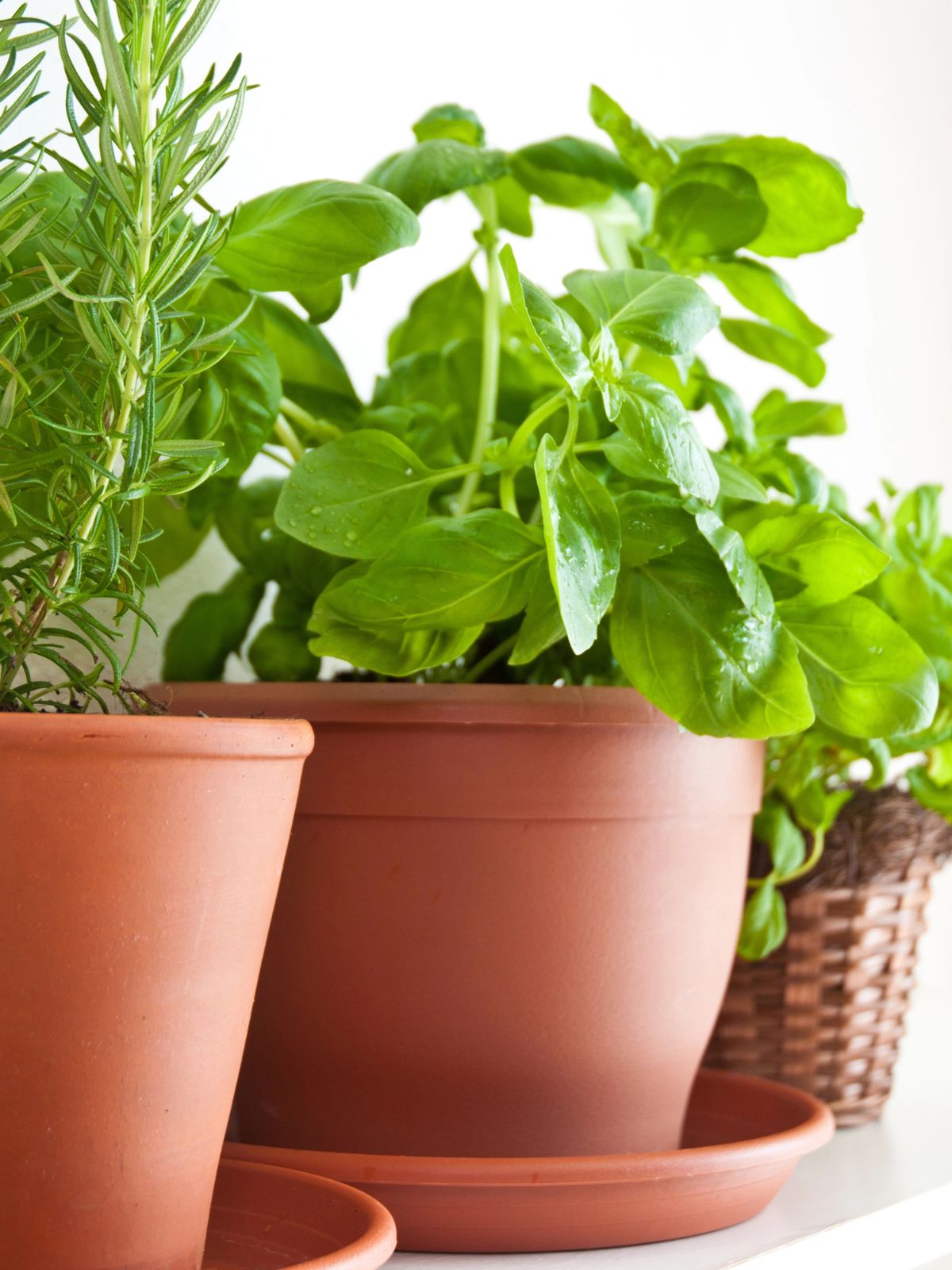
Want to Save This Recipe?
Enter your email & I'll send it to your inbox. Plus, get great new recipes from me every week!
By submitting this form, you consent to receive emails from Walking on Sunshine Recipes.
In this post, you'll learn how to use fresh herbs in everyday cooking, the best ways to store them, and which herbs pair well with different recipes. Let’s bring your dishes to life—one sprig at a time!
Table of Contents
Why Use Fresh Herbs?
- Fresh herbs add a burst of flavor, color, and aroma that dried herbs just can’t match.
- They enhance your favorite recipes, make meals feel more vibrant and homemade, and often come with added health benefits.
- Whether you're topping a pizza with basil or adding chopped parsley to soup, fresh herbs help simple dishes taste extra special.
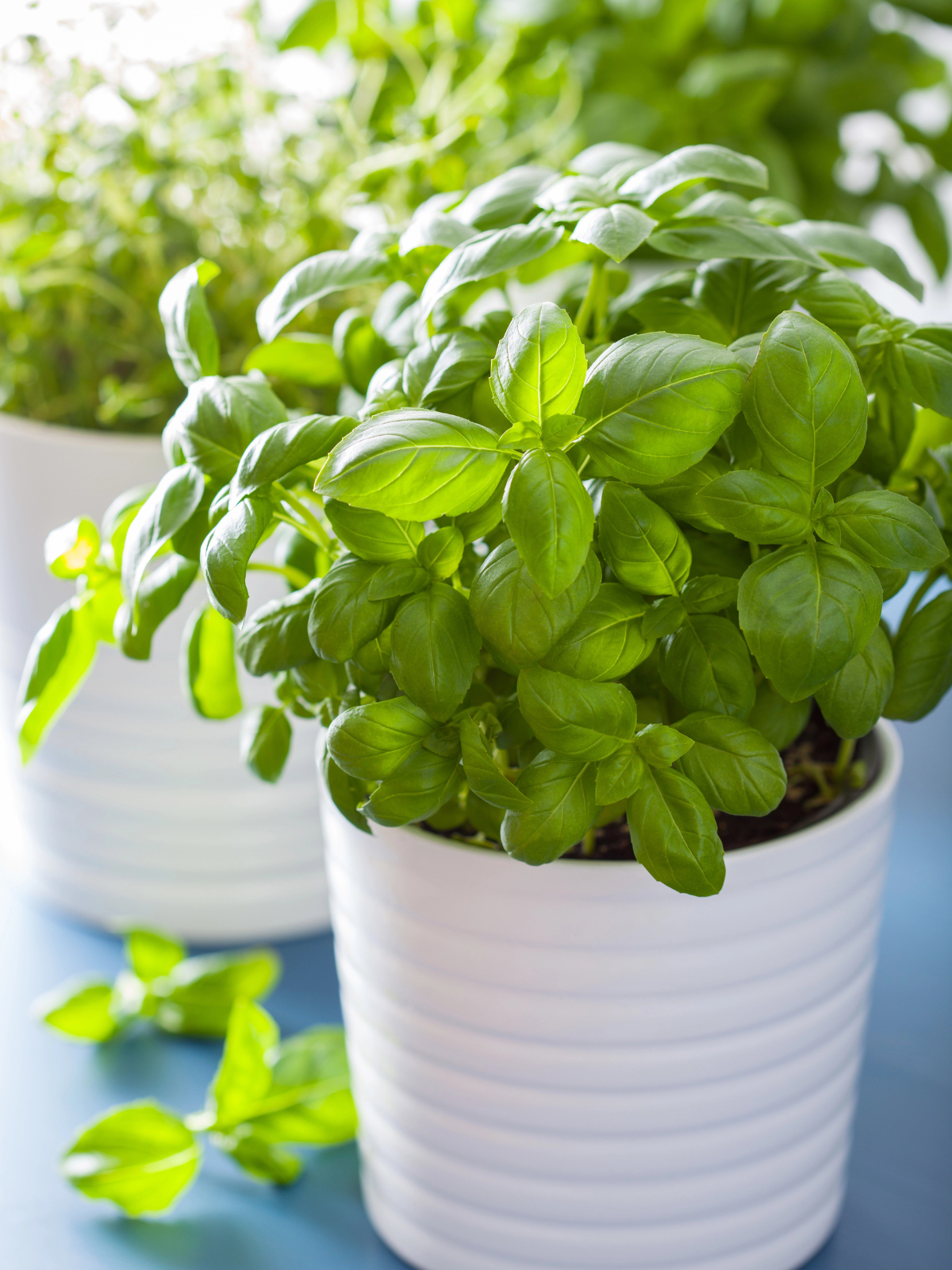
Tips for Using Fresh Herbs
- Chopping Techniques: Use a sharp knife to chop herbs to prevent bruising. For leafy herbs, a gentle chiffonade technique works well.
- Timing is Key: Add delicate herbs like basil, parsley, and cilantro towards the end of cooking to preserve their flavor. Heartier herbs like rosemary and thyme can be added earlier.
- Proper Storage: Keep herbs fresh by storing them in the refrigerator, wrapped in a damp paper towel inside a plastic bag. Or place the stems in a glass of water, cover loosely with a plastic bag, and refrigerate.
How to Use Fresh Herbs in Everyday Cooking
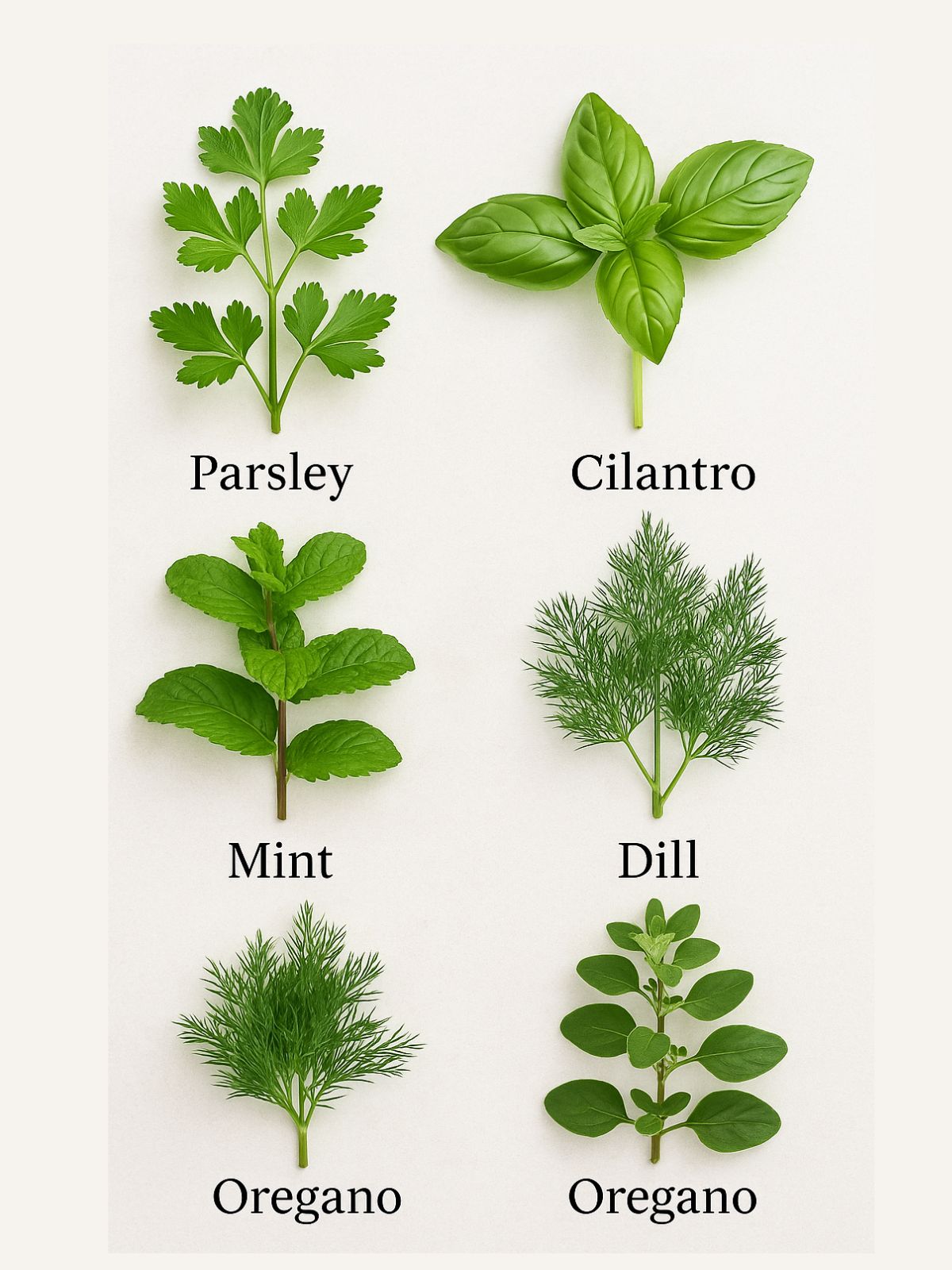
Cilantro: Great in Mexican, Indian, Thai cuisines. I love using it in my Homemade Salsa Recipe.
Dill: Complements fish, potatoes, and yogurt-based sauces. but it really stands out when making homemade Refrigerator Pickles!
Mint: Ideal for desserts, teas, and Middle Eastern dishes. I love to use it in many of my mocktails and infused beverages like my Lemon Mint Sparkling Water.
Parsley: This herbs adds fresh flavor to all kinds of dishes, but it really stands out in my easy Garlic Butter recipe.
Basil: Perfect for Italian dishes, pesto, and salads. Try it in my 30 Minute Caprese Chicken Recipe.
Oregano: A staple in Italian, Greek, and Mediterranean cooking—great for pasta sauces, pizza, and grilled meats. It's also great to season Grilled Vegetables.
Grab your copy of my Herbs eBook
Transform your meals and garden with this comprehensive guide to 15 of the most versatile and flavorful herbs.
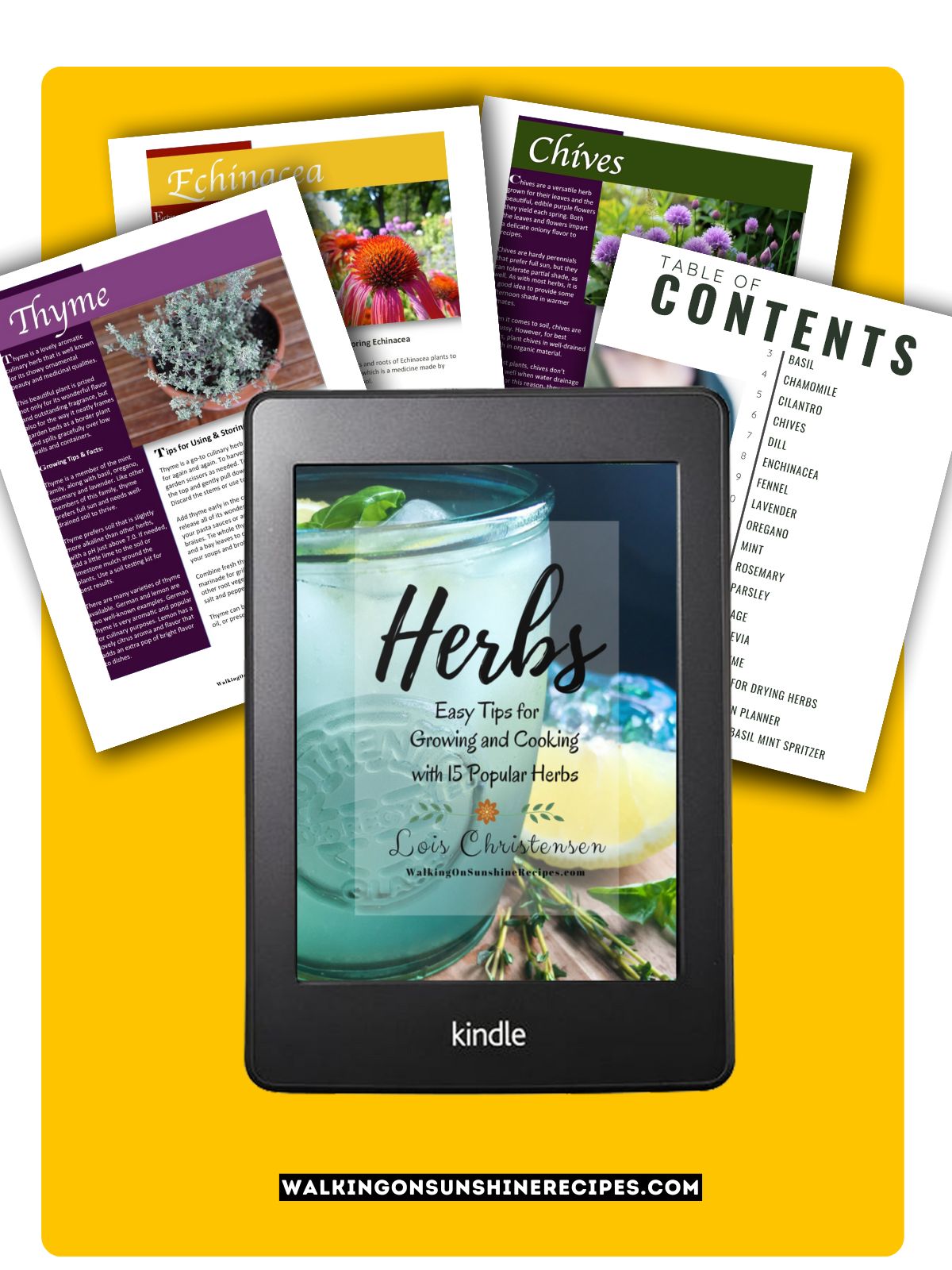

How to Store Fresh Herbs
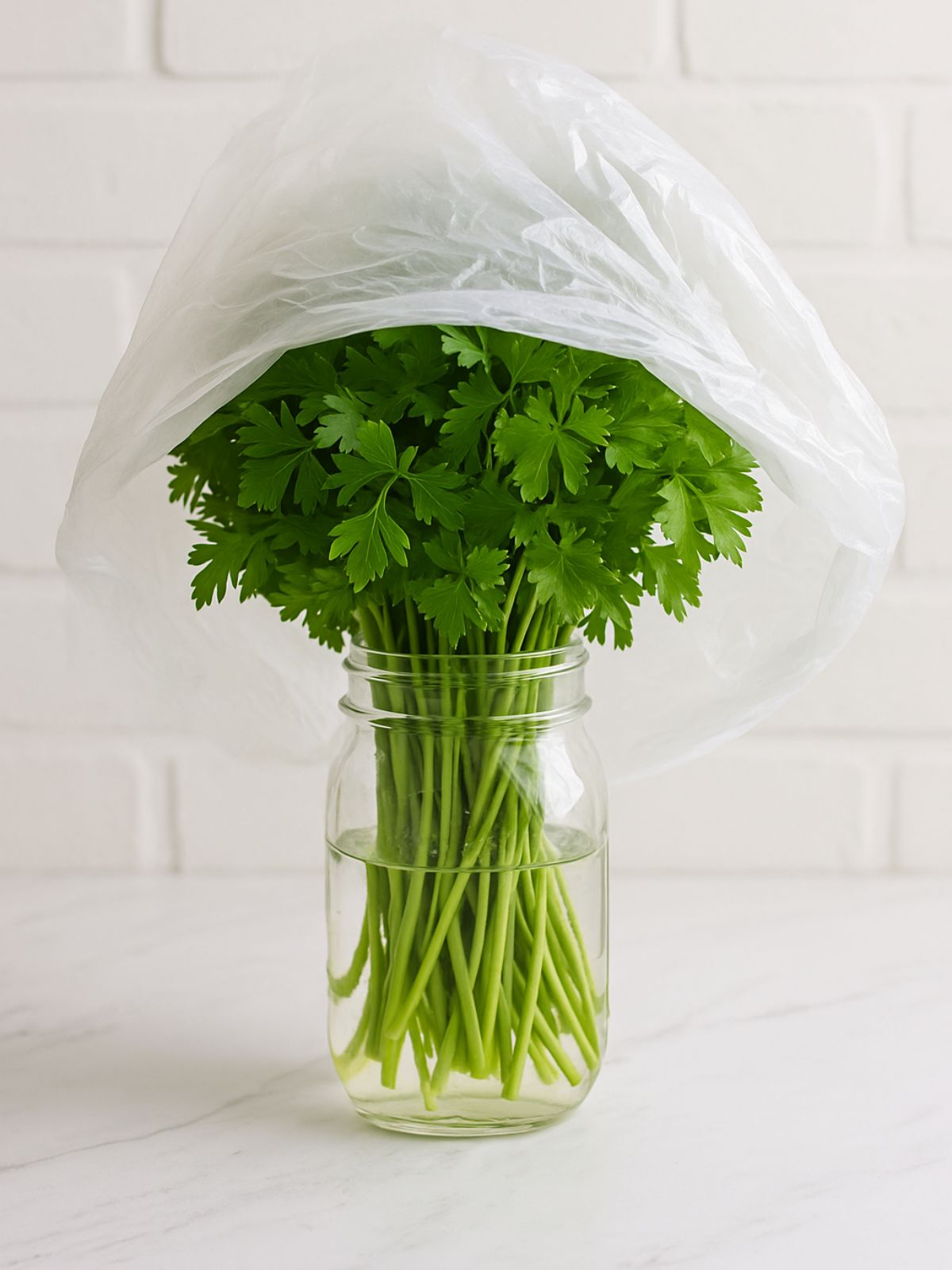
Parsley: Trim the stems and place in a jar of water. Cover loosely with a plastic bag and store in the fridge. Change the water every few days.
Basil: Keep at room temperature in a jar of water like fresh flowers. Avoid refrigerating—it can cause the leaves to turn black.
Cilantro: Store like parsley—in a glass of water with a loose plastic cover in the fridge. Rinse and trim before storing for best results.
Mint: Treat it like a bouquet: place in a jar with water and loosely cover with a plastic bag. Keep in the fridge for up to a week.
Dill: Wrap loosely in a damp paper towel and place in a resealable plastic bag in the crisper drawer of your refrigerator.
Oregano: Wrap in a damp paper towel and store in a plastic bag in the fridge, or dry the leaves for longer storage.
Free Printable Spice Labels to Organize your Kitchen in Style
Looking to organize your kitchen in a pretty and practical way? Simply fill out the form below to download my Free Spice Labels Printable and give your spice jars a clean, cohesive look!

This blog post has been updated since it first appeared in 2017.






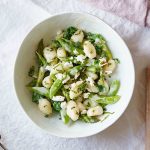
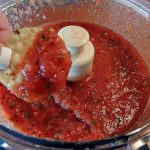
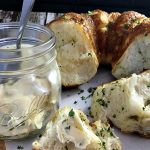
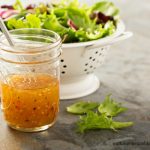

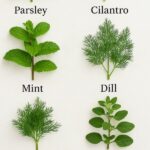

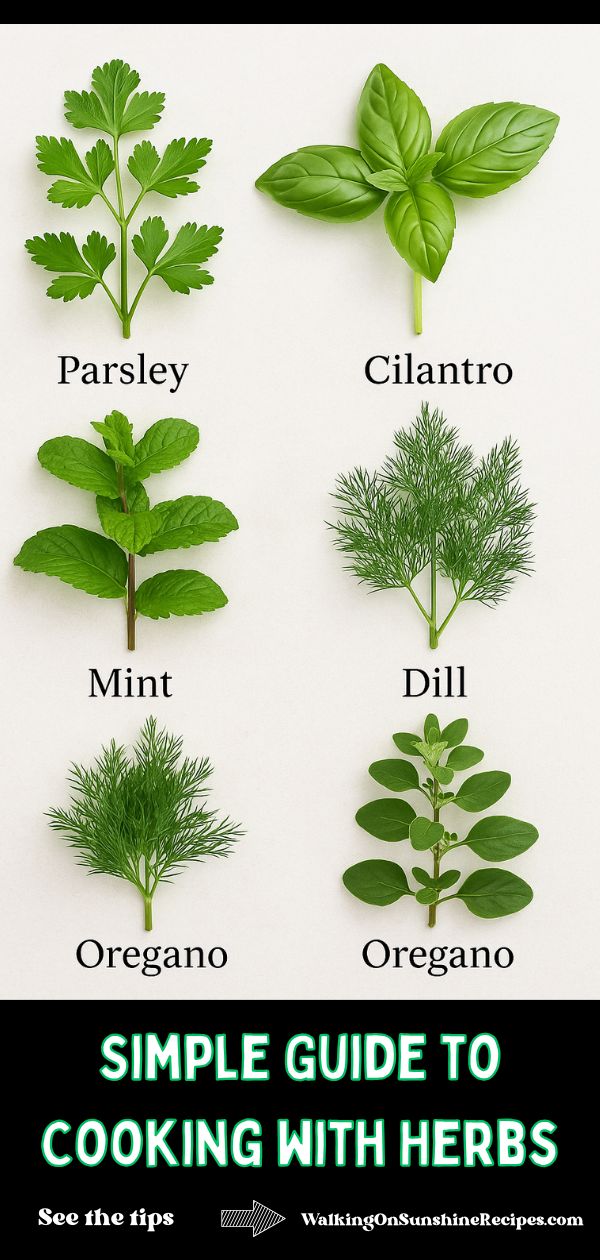

Made In a Day says
Wow that Breakfast Tacos and that Thai Pizza look so awesome! Sharing on Twitter! Thanks for the recipes and tips.Thank you for sharing on Merry Monday! Have a great week!
Kim
Jay says
What great tips! I would love you to share this at Smell Good Sunday
bullet force says
Great advice! Thanks for sharing